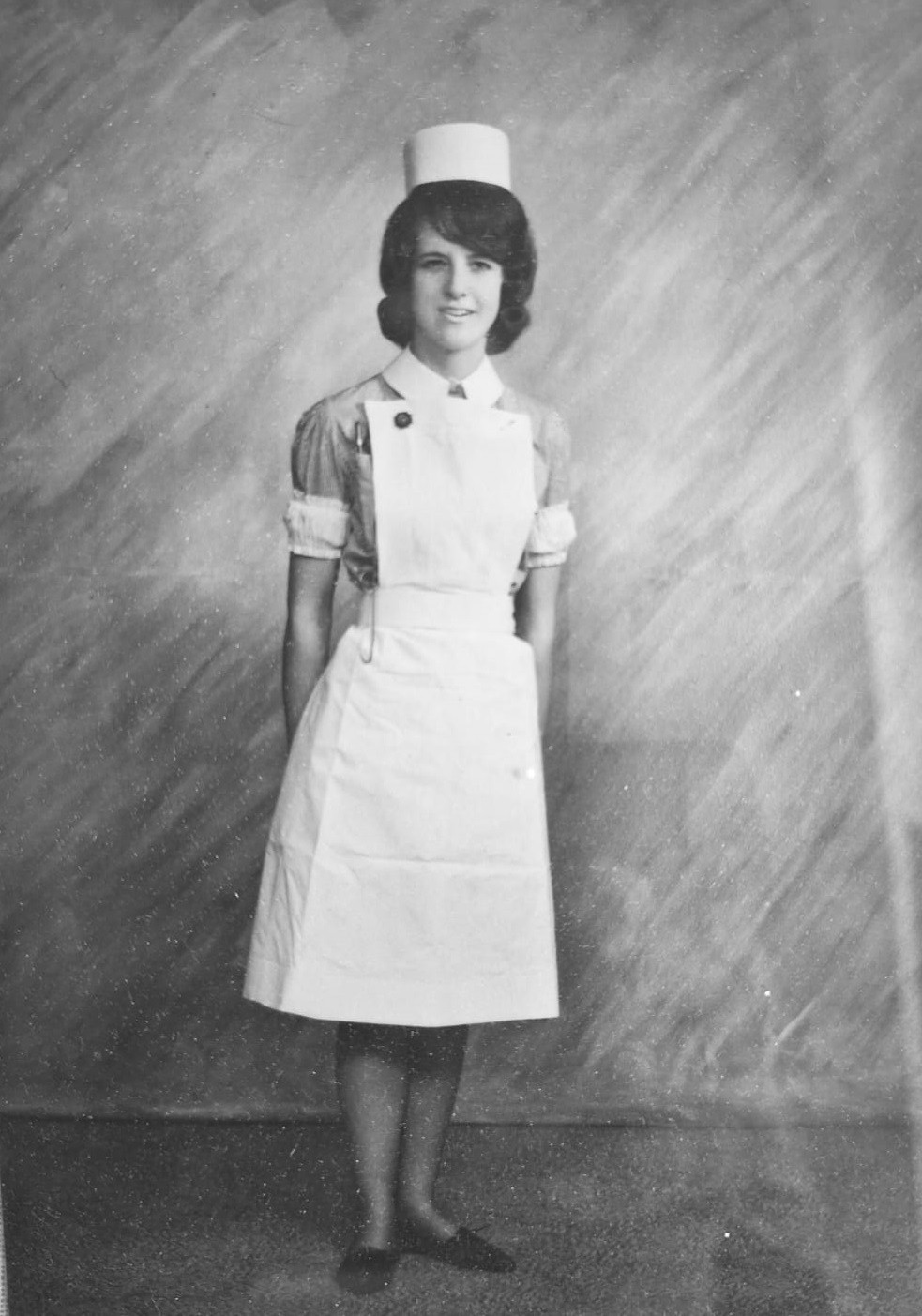
‘In my heart I will always be a nurse’
From nursing children with tuberculosis on verandas, to caring for victims of an IRA bomb attack, there isn’t much Val Ellis hasn’t seen in her 64-year NHS career.
The mum and grandmother started as a 15-year-old pre-student nurse, and finally hung up her uniform last week at the age of 79.
It was a very different uniform to the starchy clothes she was first issued with, back in 1959, but that isn’t the only thing that has changed.
Val, who lives in Dover, said: “We didn’t go to university to train, it was all done on the wards and I’m so glad – I would hate to be stuck in a classroom. It was very strict when I started, and you didn’t speak to anyone above you unless you were spoken to.
“I loved the respect that was shown to the doctors. In my day it was an honour to wash up a consultant’s cup, because doctors were held in such high regard.
“I still wouldn’t dream of addressing a doctor by their first name on the ward.
“We could be naughty behind the scenes, but heaven help you if you got caught, or if you were making too much noise when the surgeon was doing his rounds!”
Wards have also changed, from one long room with a central console to smaller bay areas for groups of patients.
Val said: “It was so different then – patients had ash trays by the beds, and some of the staff hid cigarettes in the fridges if someone senior appeared.
“One of the doctors used to put his cigar in his pocket and we would have to point out that his pocket was on fire.
“Back in my time the cleaning we had to do was absolutely phenomenal. Dirt didn’t stand a chance.”
Val started her career as a pre-student nurse at the Royal Victoria Children’s Home in Westbrook, and also worked in the children’s ward at Margate Hospital, before moving to the old Buckland Hospital in Dover to train.
She worked on the female surgical ward at the Royal Victoria Hospital in Dover, which was then one of three hospitals in the town, before a spell at the ear, nose and throat hospital in Maidstone.
After that Val returned to Buckland to work on the female surgical ward, then in the emergency department and outpatients, which was run as one department, before specialising in dermatology – where she stayed for almost 40 years.
She said: “I always wanted to be a nurse, and I didn’t intend to specialise as I loved being with patients on the ward.
“But I started to fill in for a nurse who was working with dermatology consultant Dr Valerie Neild, and I ended up working closely with her in her clinics before having my own clinics and becoming a dermatology specialist nurse.
“Valerie was my lead consultant but also a close friend and sadly she died two years ago.
“Dermatology is a huge subject; people think it is just a spot or a rash but it is the largest organ of the body and there are many problems that can affect it, from acne to skin cancer.
“It can be so rewarding to have someone with terrible eczema or psoriasis, and seeing the treatment work.
“Teenagers with acne are like a blooming flower; they go from hiding in hoodies to feeling confident to face the world.”
Val was one of the first nurses in the country to have a ‘breaking bad news’ clinic, allowing her to tell people they had skin cancer face to face in a supportive environment.
She said: “I have followed a lot of the patients for years and had had some lovely messages from them.
“I’m so grateful to the dermatology team over the years, from the top to the bottom, and I’ve loved working with every one of them. They have been so kind and respectful and I will definitely stay in touch.”
There are many memorable moments of her career, from accompanying a five-year-old who had been hit by a car in a helicopter to Stoke Mandeville Hospital in the 1960s, to the aftermath of major incidents including the 1989 IRA attack on the School of Music in Deal where 11 Royal Marines were killed, and a hovercraft accident in 1985 that killed two and injured dozens.
Val said: “I took the phone call about the hovercraft accident, and you just go into overdrive.
“You don’t have time to think or get upset. I did five years in the emergency department and what comes in the doors is unbelievable.
“You just have to get on with it, but it is afterwards when it hits you. I particularly remember the IRA attack, when so many were so badly injured for such a horrendous reason.
“But if you are able to be there and to be of some use to relatives and patients then you feel like you have made a difference.
“I am grateful I was a nurse, and in my heart I will always be a nurse.”